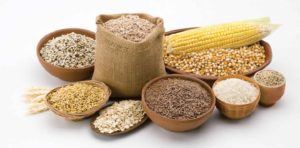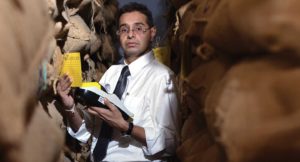When I.S.A.K. Nazar set up Manna Foods, he didn’t expect it to become a powerful brand. But, today, this health food brand has a turnover of Rs. 60 crore and expects to touch Rs. 200 crore by 2017, with a deep focus on natural health products.

For a first generation entrepreneur like I.S.A.K. Nazar, the journey of setting up Southern Health Foods Pvt Ltd, the maker of Manna Foods, and scaling it up has been a valuable learning experience. “I come from a family of teachers,” recalls Nazar, “and soon after my graduation I started working in a Chennai-based firm as a medical representative.” After spending 20 years as marketing professional in different positions, in the year 2000, Nazar decided to become an entrepreneur. “I was clear that I didn’t want to get into a business which was common and, hence, decided to focus on the health foods business. In fact, the inspiration and encouragement to get into this line came from a food technocrat friend, Mrs. Thomas,” says he. He did considerable research before entering this business and eventually developed a health mix which he registered at the Central Food Technological Research Institute.
Fast forward to today, Manna Foods has a manufacturing facility in Ponneri with a grinding capacity of 350 tonnes and a packing capacity of 600 tonnes. It is currently generating Rs. 60 crore of business with its products available in the south and other key pockets of India. By 2017, it aims to become a Rs. 200 crore company by expanding its presence in the Indian market, strengthening its export market, launching new products and increasing its retail network.
A journey to remember
For the first two to three years, the company was doing well. “It was our grandmother’s recipe which we commercialised and brought out as a traditional health product with the right packaging,” recollects Nazar. The company’s kanji mix has more than 14 grains, nuts and spices as its ingredients. While the Manna team knew that they would have a good demand for their product, they didn’t expect such a phenomenal growth within a short period of three years.
“However, very soon I got into some trouble, primarily because of a few decisions that we took based on our initial success,” admits the entrepreneur. The company entered the masala division without doing much research and within six months it realised that things were going wrong. But, they had launched in four states. The company has also realized that lot of unethical practices were being followed in Masala Marketing. “Moreover, tastes were different across the states of Andhra Pradesh, Tamil Nadu, Karnataka and we didn’t factor that in while preparing our recipes,” says Nazar. This led them into some difficulties; biggest of which was that it was affecting the parent company (Masala was launched as an associate company). Nazar took a bold decision and closed the masala division within one year of its incorporation. “By then our financial irregularities and problems mounted and we went through a tough period between 2004 and 2009,” says he. However, things started to turnaround from 2009.
The turnaround phase
“The health mix product should take the credit for saving the whole organisation. In fact, even today it contributes to 50 per cent of our turnover,” says he. Piggybacking on the strength of its flagship health mix brand, the company has added more products to its stable. It has also developed a loyal customer base for its brand. “I believe they know that anything we launch we do it with quality,” says Nazar.
In fact, another significant reason for its survival is that Manna never compromised on the quality of its product. It has the highest certification in the form of ISO 22000 and HACCP for its business. It also takes proper care in sourcing quality raw materials from its supplier base of more than 20.
One of the most important lessons that Nazar learnt was to keep a close watch on the market. Hence, he dedicated his personal time, at least twice a week, to be in the market and track the changes in the consumer needs and tastes. This not only helps him with the brand communication strategy but also gives him the conviction of doing the right thing when introducing new products. This conviction has led him to introduce multiple products over the last few years and become a 40 product company (same product may have 3 SKUs).
Manna is the third company in India to have a licence to manufacture infant products. “To our surprise, this is growing by 200 per cent every month only through shelf placement and by word of mouth. We expected it to take some time for us to popularise this product as it is not easy to convince a mother to shift from a familiar brand to this,” says he. It is selling close to 15,000 packets of baby food every month.
The company also recently launched pickles made out of olive oil, in line with its health food product strategy.
Widening its reach
To step up the distribution, the company has opened up an online store, mannaonlinestore.com, and has also tied up with all online stores in India like bigbasket.com, flipkart.com and so on. It is also a licensed supplier to all the National modern chain super markets and has invested a lot of time and effort in having a strong shelf space in the retail market. Commenting about its strategy to grow this market, Nazar says, “A retailer gives our product shelf space as there is customer demand. Most of our customers are from the middle, upper middle and higher segments of the society and the retailer knows that. This gives us additional respect with the retailers.” This apart, the management credits its effective sales team who help in managing the retailers well.
It currently has a network of 650 distributors all over India and has a strong export market in the entire Middle East – UAE, Qatar, Oman, Saudi etc. Manna also has a presence in Singapore, Malaysia, Australia and the U.S. where there is a strong Indian population. Currently, 6 per cent to 7 per cent of its turnover is from the export market which it aims to increase to 20 per cent.
Growth path
Nazar set up the company by using his savings and also taking bank loans. “Once we reached the Rs. 30 crore level, we got stuck, as to grow further we needed big money,” says he. He raised Rs. 30 crore from Fulcrum Venture India in May 2015 which has helped the company begin the scale up of its operations. It aims to grow its retail market, increase manpower so that visibility can be better and also to expand its manufacturing capacity. It also aims to increase the Manna brand visibility further by increasing ad spends from 5 per cent of its turnover to 15 per cent in the coming years.
The company is also coming out with a lot of new products which it developed over the years, but couldn’t launch due to financial requirements. It aims to introduce these products in due course. For starters, by early next year, Manna Foods is planning to come out with products which will address women’s health. The company also found that school going children do not have healthy snacks and is developing snacks in this category.
Nazar is working on getting a fair mix of high volume, low margin products and low volume and high margin products so that there is muscle power for earnings and better reach for its brand. In the high volume category, it has recently launched the smart kitchen, which includes products like tomato puree, tamarind concentrate, ginger garlic paste and coconut milk.
Manna Foods is now present in all four southern states including Pondicherry and last year, entered the Eastern markets (Orissa, West Bengal and Bihar). “We also have a small presence in the two metros – New Delhi and Mumbai – where we are catering to south Indian customers,” share Nazar. These have translated into a strong growth rate of 40 per cent on a year-on-year basis and going forward, its various new product launches and the growing market for its existing products will help in reaching the target revenue of Rs. 200 crore.
WHAT NEXT?
? To reach Rs. 200 crore in revenue by 2017 from Rs. 60 crore currently
? Aims to get the right mix of high volume, low margin products and low volume, high margin products
? Recently launched the smart kitchen, which include products like tomato puree, tamarind concentrate, ginger garlic paste and coconut milk.
? By early next year, it is planning to come out with products which will address women’s health.
? Developing healthy snacks for school going children
? Scale up exports & further grow the baby foods product category
MANNA’S JOURNEY
? Built a strong health mix brand – Manna Health Mix
? Expanded into Masala division without much market research which did not do well.
? Closed the division but went through a tough period
? Stuck to the quality product – Manna Health Mix which helped the company come out of the financial difficulties – by 2009
? Grew the market since then with clear focus on quality, strong eye on market demand and touched a turnover of Rs. 60 crore
? Funded by Fulcrum Venture which will help them grow their market and become a Rs. 200 crore company in two years




